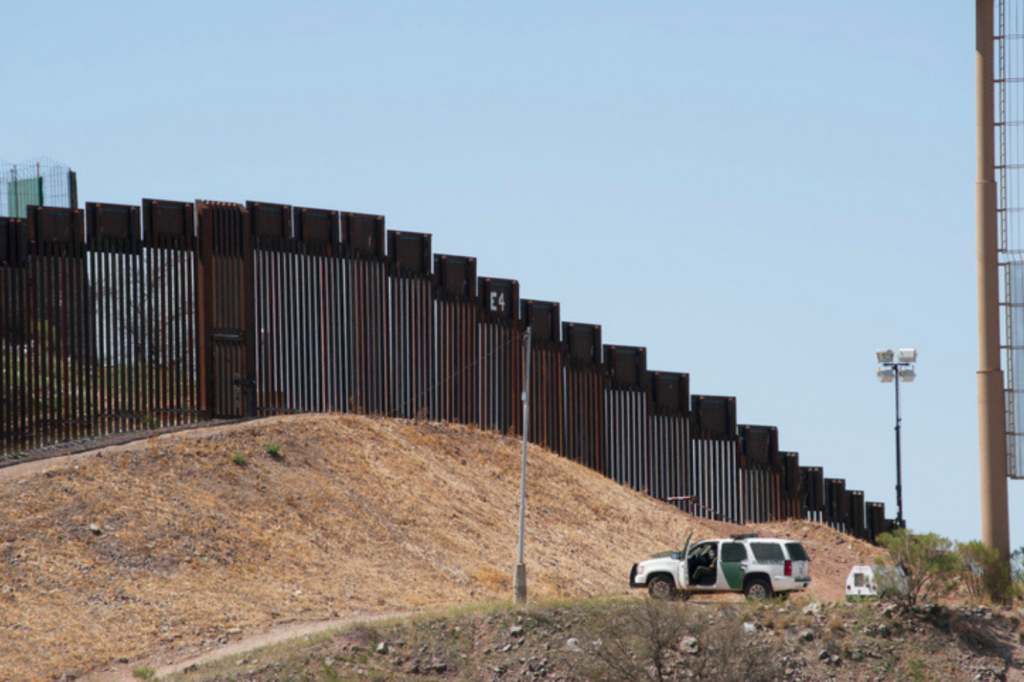FOR IMMEDIATE RELEASE
Contact: lppipress@luskin.ucla.edu
UCLA LPPI Report Finds White Voters’ Support for Trump Highest in Areas with Low Immigration, Contradicting Rhetoric
LOS ANGELES (August 15, 2024) — A new report by the UCLA Latino Policy and Politics Institute (UCLA LPPI) reveals that Donald Trump’s strongest voter support came from areas with the least exposure to immigration and international trade. The study “The Trump Paradox: A Focus On Latino and Latina Voters” challenges the former president’s campaign assertions that immigrants and trade are primary threats to the American economy. Authored by Dr. Raúl Hinojosa-Ojeda, associate professor in the UCLA Department of Chicana and Chicano Studies, the report surveys the 2016 and 2020 election cycles, providing a detailed analysis of how gender dynamics influenced voter behavior among white and Latino populations. The findings complicate the narrative that economic anxiety driven by immigration shaped voter preferences, suggesting instead a more complex interplay of factors.
The term Trump Paradox describes the phenomenon where the former president received the highest voter support in counties with the lowest levels of immigration and international trade, directly contradicting his campaign rhetoric that emphasized these issues as significant threats to the economic stability of voters. Despite Trump’s frequent claims that immigrants undermine the economic security of white working-class voters, the UCLA LPPI report reveals no evidence to support these assertions. Instead, it highlights a complex interplay between voter behavior and attitudes toward immigration and trade, challenging the simplistic anti-immigrant narrative commonly promoted.
Dr. Hinojosa-Ojeda uncovers several key findings that challenge common perceptions about voter behavior in relation to immigration and trade, particularly among white and Latino voter demographics:
- Contrary to expectations based on Trump’s anti-immigrant and anti-trade rhetoric, white voters’ tendency to support Trump was higher in counties with lower levels of immigration and trade. This paradox grew more pronounced in the 2020 election.
- In contrast to 2016, when both white females and males exhibited the Trump Paradox, in 2020, white males—not females—were the primary drivers of this phenomenon.
- In 2020, Hispanic voters did not exhibit a strong Trump Paradox. Unlike white voters, Hispanic voters’ support for Trump did not show a clear correlation with their county’s levels of immigration and trade.
- The 2020 election saw a noticeable shift among Latino voters, particularly new Latina voters. Slightly more than 29% of Latina voters supported Trump in 2020, a notable increase from the 22% who supported him in 2016. The uptick reflects a complex socio-economic landscape and indicates diverse factors influencing Latino voter behavior beyond traditional party lines.
- A larger share of Hispanic women who voted for Trump were new voters compared to other gender, racial, and ethnic groups. About a quarter of Hispanic female Trump voters in 2020 did not vote in 2016, a higher proportion than among white females, white males, and Hispanic males.
“Our report offers a timely fact-check to the often simplistic and misleading claims about the economic threats posed by immigration,” said Dr. Hinojosa-Ojeda. “By analyzing actual voter data from counties across the United States, the research presented provides a clear picture that contradicts Trump’s narrative. Our findings indicate that the real influences on white voters’ preferences are more complex and less directly tied to their personal exposure to immigrants or international trade.”
The methodology for the study involved analyzing data from the U.S. Census Bureau’s American Community Survey and the Cooperative Election Study. Researchers controlled for various demographic, political, and economic factors to accurately assess how exposure to immigration and international trade influenced voter behavior in the 2016 and 2020 Presidential Elections.
Dr. Hinojosa-Ojeda added, “The research further underscores the need for a nuanced approach to understanding voter behavior. Policymakers and campaigners should understand that the fears often stoked in political rhetoric do not necessarily align with the actual motivators for voter decisions. Our findings also reveal a significant divergence in the political landscape of America, where gender plays an increasingly critical role in shaping political views and choices. It is crucial for future political strategies to acknowledge these complexities rather than relying on broad, oversimplified narratives.”
Read the full report here.
###
About UCLA Latino Policy and Politics Institute
The UCLA Latino Policy and Politics Institute is a non-partisan research institute that seeks to inform, engage, and empower Latinos through innovative research and policy analysis. LPPI aims to promote equitable and inclusive policies that address the needs of the Latino community and advance social justice. latino.ucla.edu.










